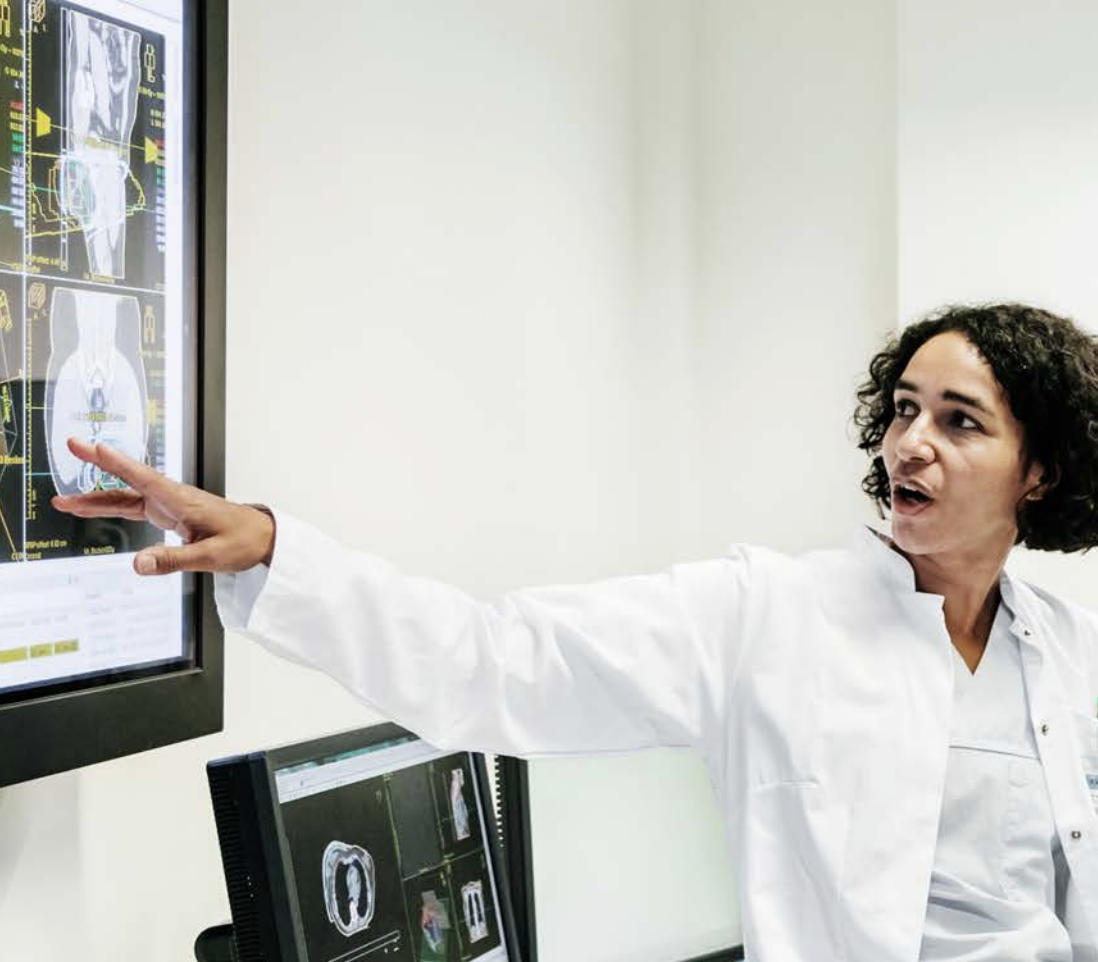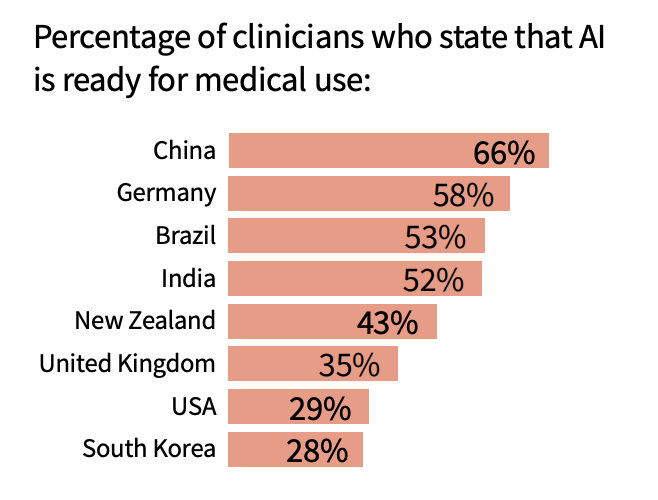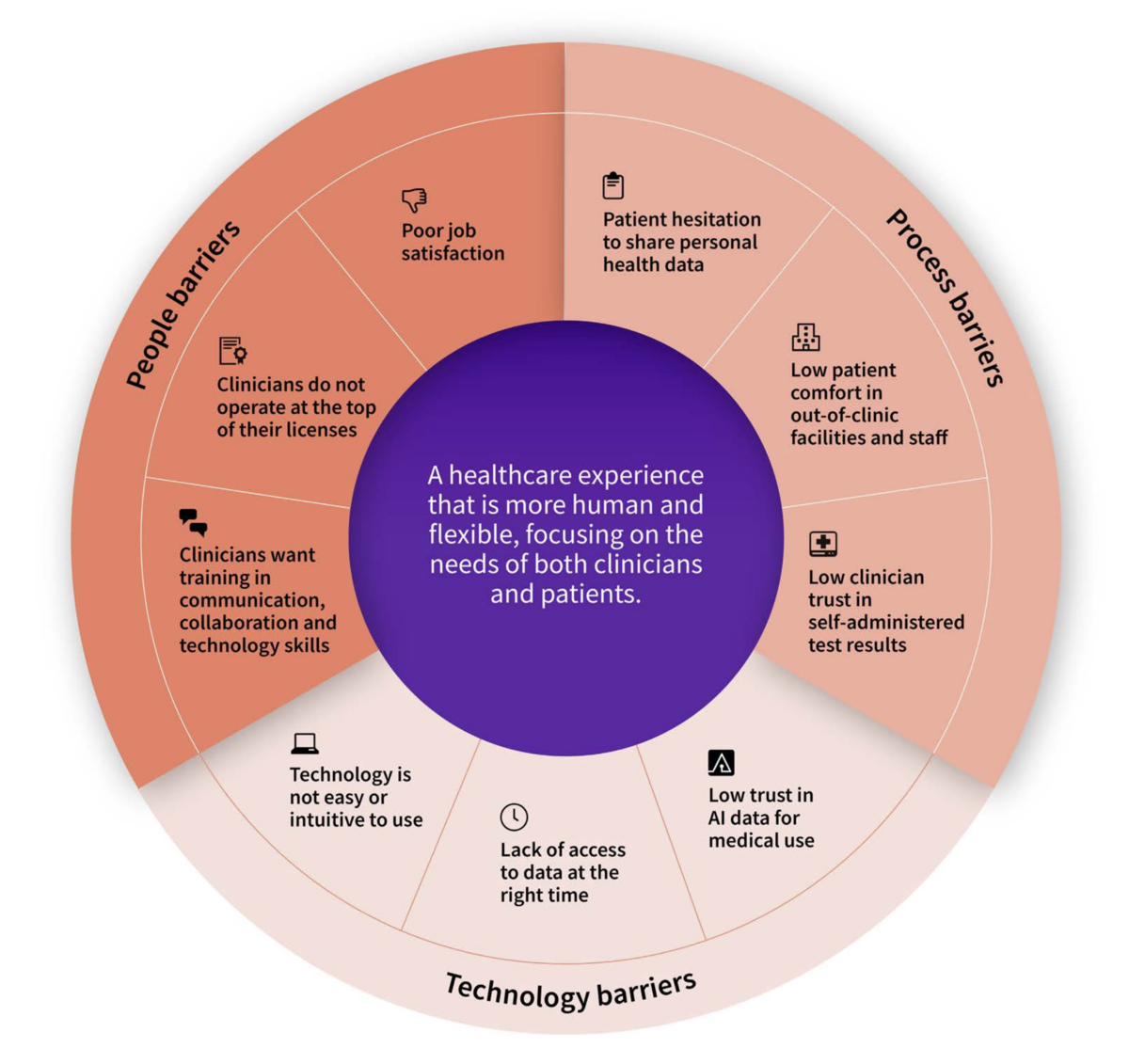AI no antidote to healthcare sector woes
With hospitals overwhelmed and patients facing big delays, it's tempting to think that the health sector is a prime candidate to receive a much-needed productivity boost from artificial intelligence.
Despite its well-proven use in medical diagnostics and other areas of healthcare, low trust in AI among patients and clinicians alike is a big barrier to its uptake in the health sector.
That’s according to the Reimagining Better Health study, which surveyed 7,500 patients and clinicians around the world, including 250 clinicians and 500 patients in New Zealand.

While most New Zealand clinicians surveyed believe AI can support clinical decision-making (62%), enable faster health interventions (50%) and help to improve operational efficiency (50%), “distrust and scepticism around AI in medical settings is prevalent among all stakeholders” the study found.
Only 42% of New Zealand clinicians feel that AI medical technology is ready for medical use - compared to 58% for clinicians overall.
“AI technologies in healthcare are designed to improve patient experience and outcomes, automate tasks, and enhance productivity, however distrust and lack of training are barriers to the adoption of AI technologies that will need to be overcome to fully embrace AI technology in our healthcare systems,” says Amit Yadav, Chief Executive Officer Australia and New Zealand, at GE Healthcare, which commissioned the study.
Only 41% of New Zealand clinicians indicate AI data can be trusted. In the USA this
number dips to 26% suggesting AI software makers have a big job ahead proving the accuracy and quality of results produced by AI systems. Clinicians with more than 16 years of experience are even more sceptical of AI, with only 33% trusting the quality of AI data.

Source: GE Healthcare Reimagining Better Health study
Less than half of New Zealand clinicians believe that while AI can help to reduce care disparities (49%), and that the technology is subject to built-in biases.
The ChatGPT hype around AI likely hasn’t done the technology any favours when it comes to its perception among health professionals. But our health sector faces a more prosaic series of barriers to tech adoption that sector reforms are unlikely to address quickly.
Existing technology is not easy and intuitive to use, and lack of access to data at the right time, are major issues facing clinicians and patients alike.

Source: GE Healthcare Reimagining Better Health study
“There is a prevailing discomfort in new care delivery models that can perhaps be attributed
to low technological interoperability across the healthcare system,” says Yadav.
“With 41% of clinicians are not convinced they have timely access to reliable electronic patient records, and approximately one-third of patients (35%) share concerns that clinicians treating them do not have access to their relevant health data, there are barriers to overcome to support a fully flexible healthcare system.”
The double-blinded survey with random sampling was conducted between August and October 2022 by a third-party market research firm.
